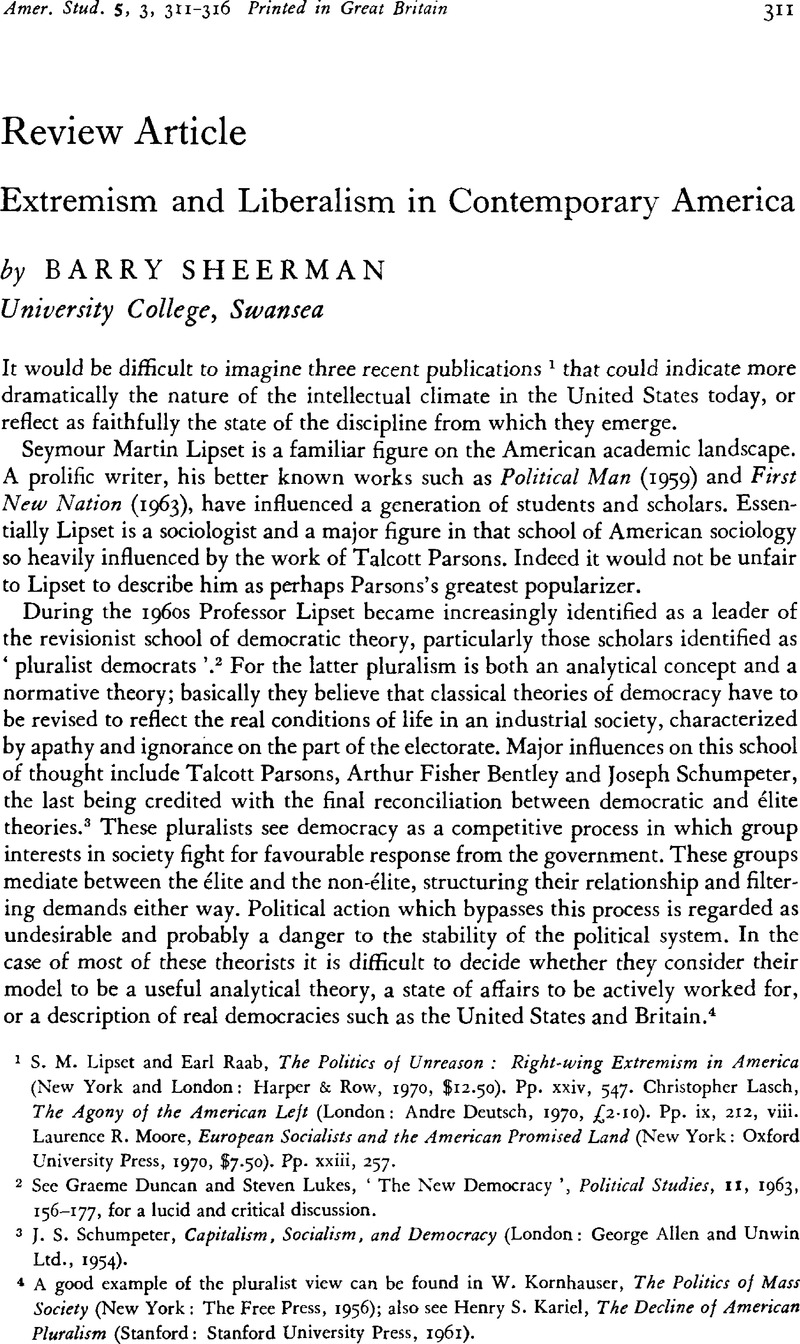No CrossRef data available.
Article contents
Extremism and Liberalism in Contemporary America
Published online by Cambridge University Press: 16 January 2009
Abstract

- Type
- Review Article
- Information
- Copyright
- Copyright © Cambridge University Press 1971
References
1 Lipset, S. M. and Raab, Earl, The Politics of Unreason: Right-wing Extremism in America (New York and London: Harper & Row, 1970, $12.50). Pp. xxiv, 547Google Scholar. Lasch, Christopher, The Agony of the American Left (London: Andre Deutsch, 1970, £2·10). Pp. ix, 212, viiiGoogle Scholar. Moore, Laurence R., European Socialists and the American Promised Land (New York: Oxford University Press, 1970, $7.50). Pp. xxiii, 257.Google Scholar
2 See Duncan, Graeme and Lukes, Steven, ‘The New Democracy’, Political Studies, II, 1963, 156–177CrossRefGoogle Scholar, for a lucid and critical discussion.
3 Schumpeter, J. S., Capitalism, Socialism, and Democracy (London: George Allen and Unwin Ltd., 1954).Google Scholar
4 A good example of the pluralist view can be found in Kornhauser, W., The Politics of Mass Society (New York: The Free Press, 1956)Google Scholar; also see Kariel, Henry S., The Decline of American Pluralism (Stanford: Stanford University Press, 1961).Google Scholar
5 Perhaps ominously foreshadowed in the events at Kent State University in 1970.
6 ‘The New Democracy’, op. cit., note 2 supra.
7 See Bell, Daniel, ‘The End of Ideology’: on the exhaustion of political ideas, in The Fifties (Glencoe Free Press, 1960).Google Scholar S. M. Lipset, especially ch. 13. Shils, E., ‘Letter from Milan: the End of Ideology’ in Encounter (11 1955)Google Scholar. La Palombora, Joseph, ‘Decline of Ideology: A Dissent and an Interpretation’, A.P.S.R., 60, 1966Google Scholar, and Lipset's reply to this in the next issue.
8 See Laski, Harold, The American Presidency (London: Allen and Unwin, 1940).Google Scholar
9 This view seem to have been extremely influential on much non-Marxist writing on social change in the twentieth century. Change, social and political, will come yet no one has to do anything about it; it is inevitable; the vehicle being the revolution in communications in Marshall McLuhan's writing or the generational revolution in Reich's view The Greening of America. But these are two recent examples of a continuing tradition.


